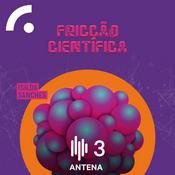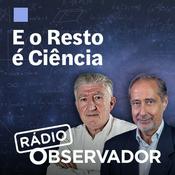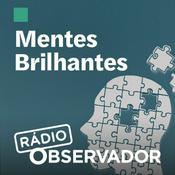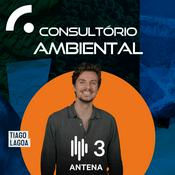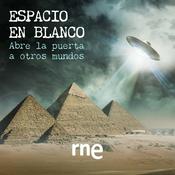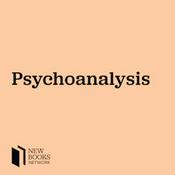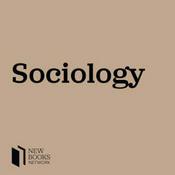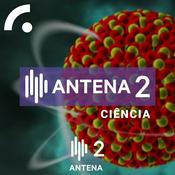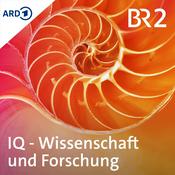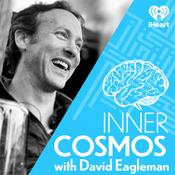11 episódios
- In this episode, we delve into the topic of the foundations of the economic analysis of law. Where do we stand nowadays in law and economics? How has the field evolved from the classical economic analysis of law to the rise of law and political economy? Is there room for a “limping third way” between these approaches? What are the main methodological problems shaping the field today: unilateralism from economics to law, conceptual simplifications, or institutional pressures within academia? What could a true reconciliation between legal reasoning and economic analysis look like?
Fabrizio Esposito joins us to explore these questions and to outline possible paths forward for the discipline. We discuss the evolution and internal divisions of law and economics, the growing distance between theory and practice, and the methodological challenges that hinder interdisciplinary dialogue. Esposito proposes a “fitness-based bilateralism” that bridges empirical and normative inquiry through comparative, inferentialist methods, while also emphasizing the need to revive minoritarian and “third way” perspectives that bring law and economics closer to the realities of legal reasoning and institutional choice.
Fabrizio Esposito is an Associate Professor of Private Law at NOVA School of Law (Lisbon). At NOVA, he co-coordinates the Master’s in Law Applied to Technology (Law & Tech) and the Data-Driven Law Knowledge Centre, and he is also Librarian Professor and a member of the NOVA Consumer Lab. Outside NOVA, he coordinates the MetaLawEcon network and works as an analyst for EU Law Live.
His research sits at the intersection of private law, EU economic law, law & economics, and legal theory, with particular attention to how consumer law, data protection, competition law, and sector-specific regulation respond to technological change in the “attention economy.” Current strands of work include price personalization and theories of harm in consumer law, especially where consumer data is involved.
He has published in international journals such as Computer Law & Security Review, European Review of Contract Law, and the Journal of Consumer Policy, and has co-edited volumes such as Research Methods in Consumer Law (Edward Elgar, 2018) and Economics in Legal Reasoning (Palgrave, 2020).
[This episode was hosted by Julieta Rabanos and Bojan Spaić; edited by Bojan Spaić; uploaded and formatted by Julieta Rabanos]
(00:00:00) Intro – HAPL Podcast
(00:00:16) Introduction to the Episode – Hosts and Guest
(00:01:12) Fabrizio Esposito – Academic Genealogy and Research Interests
(00:07:49) Where Do We Stand in Law and Economics?
(00:17:20) Economic Analysis of Law vs. Law and Political Economy vs. the Limping Third Way
(00:17:43) Clarifying What “Law and Political Economy” Really Means
(00:19:35) Interdisciplinarity Problems – Economists, Lawyers, and Institutional Barriers
(00:22:21) Theory and Practice – Are Legal Philosophers Also Guilty of Disconnection?
(00:30:41) Balancing, Proportionality, and the Use of Economic Concepts in Law
(00:36:13) Constitutional Adjudication and the Limits of Economic Analysis
(00:38:04) Methodological Underpinnings – From Descriptive Models to Foundationalism
(00:45:20) What Are the Methodological Problems in Law and Economics?
(00:57:29) Institutionalization and the Academic Detachment Problem
(01:04:09) What Is the Way Forward? ‘Fitness-Based’ Bilateralist & Institutional Solutions
(01:18:20) The Role of Abstraction and the Value of Theory
(01:26:40) Normativity in Law and Economics
(01:36:15) Exploring the Third Way and Minoritarian Views
(01:43:10) Legal Education and Institutional Reform
(01:46:22) Teaching Across Disciplines – Law, Philosophy, and Economics
(01:50:45) Realism and Optimism About the Future of Law and Economics
(01:54:02) Farewell Reflections – Interdisciplinarity and Academic Change
(01:57:10) Outro – HAPL Podcast - In this episode, we delve into the debate about experimental jurisprudence (also known as xJur). What is exactly “experimental jurisprudence”? What is in turn “experimental philosophy”? What are the methods of xJur and what are the good practices in order to get replicable results? Can we truly achieve knowledge on law through experiments?
Izabela Skoczeń discusses with us the raising in importance of experimental jurisprudence in the last years, how it fits within the underlying assumptions in philosophy and jurisprudence related to law, and the criticisms that have been formulated towards it. We explore first a general introduction to both experimental jurisprudence and experimental philosophy, as well as the array of methods used by the former and an overview of the applicable good practices.
We then address some of the criticisms formulated towards xJur, arguing for the ecological validity of xjur, arguing why xjur is helpful, also when focused on non-expert understanding of concepts, and why a short scenario can shed light on complex conceptual issues. Finally, we close the episode exploring the role of xJur in conceptual analysis and the challenge of conflicting intuitions.
Izabela Skoczeń is an assistant professor at the Law Faculty of the Jagiellonian University in Kraków, Poland. Her work focuses on the intersection of legal theory, experimental jurisprudence and philosophy of language.
She is a member of the Jagiellonian Centre for Law, Language and Philosophy, a member of the editorial board of the Bloomsbury series ‘Advances in Experimental Philosophy’, and a contributing editor of the jurisprudence section of Jotwell. She is currently working on a project on devising principles for responsible LLM communication with partners from Austria, Romania and Switzerland: https://talkingtobots.net . She is also working on a project on cross-cultural replications of experimental jurisprudence studies, together with K Tobia and J L Nunes.
She has published in Synthese (Renouncing the attempt versus perpetration distinction, 2023), Bloomsbury (chapter: From lying to blaming and perjury: deceptive implicatures in the courtroom and the materiality requirement, 2025), Cognition (Outcome effects, moral luck and hindsight bias, 2023, with M Kneer), the Leiden Journal of International Law (Inside the treaty interpreter’s mind: An experimental linguistic approach to international law, 2023, with B Pirker), Ratio Juris (Delimiting Legal Interpretation: The Problem of Moral Bias and Political Distortion—The Case of Criminal Intention, 2022, with F Poggi), the International Journal for the Semiotics of Law (Modelling Perjury: Between Trust and Blame, 2021), Oxford University Press (chapter: Is a Legal Implicature in the Eye of its Beholder?, 2022). She has authored a monograph, Implicatures within Legal Language, in 2019, in the Springer Law and Philosophy Library.
Overviews of xJur work mentioned:
Stanford Encyclopedia of Philosophy entry on experimental jurisprudence by K Tobia, G Almeida, K Prochownik and I Hannikainen
The Cambridge Handbook of Experimental Jurisprudence ed by K Tobia
Overview article by K Tobia
Overview article by R Sommers
Overview article by K Prochownik
[This episode was hosted by Julieta Rabanos and Bojan Spaić; edited by Bojan Spaić; uploaded and formatted by Julieta Rabanos]
(00:00:00) Intro HAPL
(00:00:18) Introduction to the episode – hosts and guest
(00:00:58) Izabela Skoczeń – Academic Genealogy and Research Interests
(00:05:04) Experimental Jurisprudence (xJur) – What exactly is it?
(00:12:32) xJur and Experimental Philosophy
(00:27:49) An Underlying Assumption – does law deal with facts?
(00:33:53) Methods of xJur & Replicability
(00:45:54) Some Criticisms Formulated Towards xJur
(00:54:42) xJur & Conceptual Analysis - The Challenge of conflicting intuitions
(01:11:02) Farewell and last words
(01:15:34) Outro HAPL Episode 9 - Responsibility for Negligence in Ethics and Law (ft. Veronica Rodriguez-Blanco)
02/6/2025 | 1h 9minIn this episode, we delve into the debate about responsibility for negligence in ethics and law. What is exactly “responsibility”? What does responsibility involve, and it is the same across disciplines? How ancient and medieval moral psychology might (or should) inform contemporary legal theory about these topics? What about specific types of responsibility, such as responsibility for negligence?
Veronica Rodriguez-Blanco discusses with us why responsibility is a cornerstone notion in ethics and law, and what is the importance and interest of focusing specifically on responsibility for negligence. We explore first a proposal of reconstruction of this latter notion elaborated by Rodriguez-Blanco, considering the intersection of ancient and contemporary philosophy of action, theories of practical reason, and private law theory. We then analyse the key difference between a “bifurcation model” and an “Aristotelian-inspired model” of deliberation, and how the notion of “akrasia” might illuminate the phenomenon of negligence.
Veronica Rodriguez-Blanco is the inaugural holder of the Chair of Moral and Political Philosophy (Jurisprudence) in the School of Law, University of Surrey and member of the Surrey Centre for Law and Philosophy. She studied law at Oxford University (MJur, Balliol College) and legal philosophy at the University of Cambridge (PhD, Corpus Christi College). Her research is located at the intersection of practical reason, philosophy of action and law. She draws insights from ancient, medieval and contemporary moral psychology and action theory to illuminate the nature of private law, legal authority and normativity. Further details on her current research can be found here.
Rodriguez-Blanco’s research has been published in leading journals, and coedited co-editor of Agency, Negligence and Responsibility (CUP, 2021), Dignity in the Legal and Political Philosophy of Ronald Dworkin (OUP, 2018), Reasons and Intentions in Law and Practical Agency (CUP, 2015) . She is the author of two main monographs: Law and Authority Under the Guise of the Good (Hart/Bloomsbury Publishing, 2014, 2017), where she argues that the understanding of the structure of practical reason sheds light on legal authority and normativity; and, for the main interest of the listeners of this episode, the very recent Responsibility for Negligence in Ethics and Law. Aspiration, Perspective, and Civic Maturity (Oxford University Press, 2025).
[This episode was hosted by Julieta Rabanos and Bojan Spaić; edited by Bojan Spaić; uploaded and formatted by Julieta Rabanos]Episode 8 - Legal validity and concept-construction methodology (fr. Mathieu Carpentier)
06/5/2025 | 1h 33minIn this episode, we delve into the debate about legal validity and concept-construction methodology. What is exactly legal validity? What would be the most adequate way to construct a concept of legal validity? How is the idea of cluster concepts important for this debate? Do theoretical or conceptual distinctions have any practical relevance? Mathieu Carpentier discussed with us why legal validity is a key concept for legal theory and why it is better understood as a cluster concept, broken down into more elementary units of meaning. We explore first how – and why – acluster concept-construction methodology is more useful than other methodologies and then explore in-depth the elementary units Carpentier identify related to the concept of legal validity, as well as the internal relations among theseunits. Finally, touch upon the impact of all of these on the definition of the rule of recognition, and the relevance of this discussion and distinctions to legal positivism (including the inclusive and exclusive legal positivism debate).
Mathieu Carpentier is a Professor of Public Lawat the University of Toulouse Capitole and a Fellow of the Institut universitaire de France. He works on various issues in legal philosophy as well as constitutional law and theory and comparative constitutional law. His PhD thesis was devoted to legal defeasibility (it was published in French in 2014).He recently edited a book called “Meta-Theory of Law” (ISTE/Wiley, 2022). He has written around 50 papers in French and English.
Listeners wanting to dive deeper in his work on legalvalidity, concept-construction and the methodology of jurisprudence can check some of his papers on SSRN: Sources and Validity (2018), Validity and Applicability: A Small Dose of Scepticism(2018), Kelsen on Derogation and Normative Conflicts (2020), Sources of Law (with Torben Spaak, 2024), Against “Legal Facts” (forthcoming 2025). French readers may also consult his Problèmes relatifs à l'identification temporelle des systèmesjuridiques (2023) and Controverses sur la “nature” du droit (2018).
[This episode was hosted by Julieta Rabanos and Bojan Spaić; edited by Bojan Spaić; uploaded and formatted by Julieta Rabanos]
(00:00:00) Intro HAPL
(00:00:16) Introduction to the episode – hosts and guest
(00:01:30) Mathieu Carpentier – Academic Genealogy and Research Interests
(00:06:24) Legal Theory and Philosophy in France
(00:19:05) Legal Validity – Concept, Classical View, Importance for Legal Theory and Philosophy
(00:27:49) Legal Validity & Adequate Methodology of Concept-Construction
(00:32:50) Legal Validity as a Cluster Concept
(00:40:21) Legal Validity and its Units of Meaning (an Introduction)
(00:55:50) Legal Validity and the Concept of Legal System
(01:00:58) Legal Validity and its Units of Meaning – On Efficacy and Relation between Units
(01:09:24) Legal Validity and the Rule of Recognition
(01:21:31) Adequate Methodology of Conceptual Analysis and Concept-Construction
(01:30:22) Farewell and last words
(01:32:49) Outro HAPLEpisode 7 - The debate on rules & principles, genericity and categorisation (fr. Pedro Moniz Lopes)
07/2/2025 | 1h 21minIn this episode, we delve into the debate on rules and principles, the topic of law and categorisation, and the connection between equality (and analogy). Why the obsession in philosophy of law with the rules/principles debate? Is the distinction purely definitional or also substantial? How is the element of genericity – not generality - important for the debate? Does equality have something to do here? And analogy? Pedro Moniz Lopes discusses with us why the distinction between rules and principles is better understood as a strong distinction, different of the kind proposed by Robert Alexy. This strong distinction is based on the key criterion of genericity – that is, based on the specificity of the action that is being governed by the norm. We explore how categorisation might not be purely didactical or pedagogical and its role in allowing us to anticipate the way entities behave in reality, the possible parallels between principles in law and causal forces in the natural world in regards to explanation, how equality factors in the discussion regarding genericity and principles, and how analogy enters the picture.
Pedro Moniz Lopes is an Assistant Professor of Legal Philosophy and Constitutional Law at the Faculty of Law, University of Lisbon. He co-heads “Lisbon Legal Theory” and is a Senior Fellow of the Lisbon Public Law Research Centre in which he coordinates research activities in the field legal theory and legal philosophy. Pedro has also been the Executive Director of e-Publica – Public Law Journal for the past 10 years.
His current research interests are constitutional equality and analogical reasoning, linguistic and logical accounts of generic norm sentences and marginal utility of fundamental rights.
Pedro’s work is mostly available at his academia page: https://pedromonizlopes.academia.edu/
[This episode was hosted by Julieta Rabanos and Bojan Spaić; edited by Bojan Spaić; uploaded and formatted by Julieta Rabanos]
(00:00:00) Intro HAPL
(00:00:18) Introduction to the
episode
(00:01:09) Pedro Moniz Lopes –
Academic Genealogy and Research Interests
(00:07:07) Research Groups – Lisbon Legal
Theory and History
(00:13:54) Rules & principles:
Arrival to the Distinction and Criteria for Distinguishing
(00:26:12) Rules & principles:
what entities are they? How does this connect with the issue of categorisation?
(00:32:28) Genericity
as the distinction criterion between rules & principles
(00:48:04) The role of equality in the discussion on categorisation
& rules and principles
(01:00:24) Equality and analogy: similarities
and differences
(01:08:55) How to Frame the
Discussions regarding Rules & Principles: from the Legal System to Legal
Practitioners
(01:16:58) Farewell and last words
(01:21:00) Outro HAPL
Mais podcasts de Ciência
Podcasts em tendência em Ciência
Sobre Heavily Accented Philosophy of Law
Heavily Accented Philosophy of Law podcast (HAPL) is an initiative of EU Twinning Project ALF (“Advancing Cooperation on the Foundations of Law”).
ALF is a project coordinated by the Center for Legal Fundamentals of the Faculty of Law University of Belgrade.
To know more about the project: https://alf.ius.bg.ac.rs/
Sítio Web de podcastOuve Heavily Accented Philosophy of Law, Fricção Científica e muitos outros podcasts de todo o mundo com a aplicação radio.pt
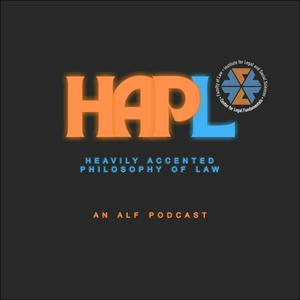
Obtenha a aplicação gratuita radio.pt
- Guardar rádios e podcasts favoritos
- Transmissão via Wi-Fi ou Bluetooth
- Carplay & Android Audo compatìvel
- E ainda mais funções
Obtenha a aplicação gratuita radio.pt
- Guardar rádios e podcasts favoritos
- Transmissão via Wi-Fi ou Bluetooth
- Carplay & Android Audo compatìvel
- E ainda mais funções


Heavily Accented Philosophy of Law
Leia o código,
descarregue a aplicação,
ouça.
descarregue a aplicação,
ouça.

